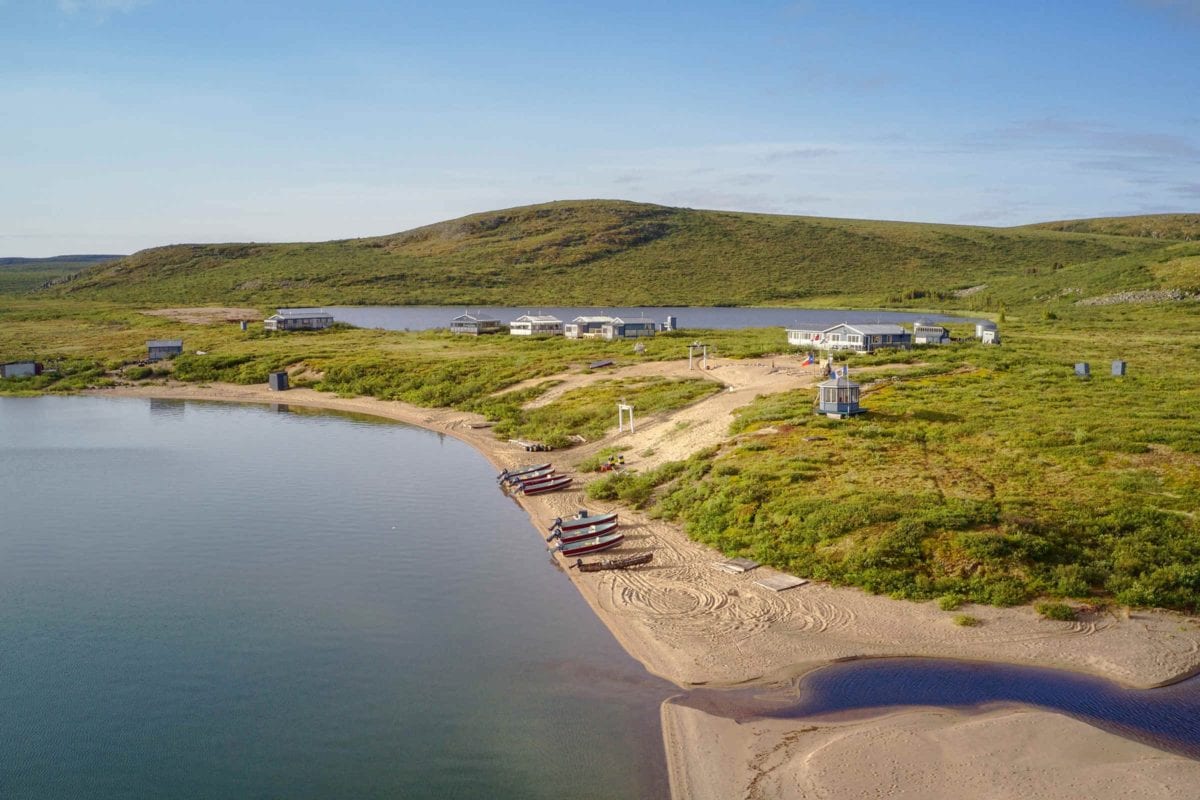After a summer of no tourists, for a lodge that depends on tourists, the owners of Peterson’s Point Lake Lodge look back at the season without blinking, while they look to the future with eyes on Northern tourists.
“(It was) just another challenge,” said owner Margaret Peterson, with a shrug.
Margaret and her daughter Amanda explained that in the roughly 40 years they’ve been operating the remote lodge, it has faced difficulties comparable to the total loss of tourism caused by Covid-19.

photo courtesy of Peterson’s Point Lake Lodge
When Margaret and her late husband Jim opened the fly-in lodge in the early 1980s on Point Lake, about 320 km north of Yellowknife, it started out as an outfitting camp for caribou hunters.
The lodge did well. It experienced a rough stretch following the Sept. 11, 2001 terrorist attacks, but that didn’t compare to 2009, when declines in the Bathurst herd caused the GNWT to ban caribou hunting that year.
“I would say we lost 90 per cent of our revenue,” said Amanda. “We were like, ‘How are we going to diversify? What are we going to do?'”
That same year they pivoted their tourism model and developed the highly-successful Arctic photography program, where guests join week-long photography workshops on the tundra that surrounds the lodge.
But Covid presented a “more extreme” challenge, Amanda said, because tourists are needed to make any new program possible.
“I think there are some other needs out there. We already have our structures in place, and a significant investment in place, so it’s a matter of developing things that’ll work with what we’ve already established, rather than creating something completely new,” she said.

Blair McBride/NNSL photo
This past summer differed from the downturn of 2009 in that the Petersons could access Covid-related assistance programs, without which a worse outcome might have befallen the lodge.
They managed to receive help from the federal Northern Business Relief Fund and the Growth and Recovery by Investing in Tourism (GRIT) Fund, which is offered jointly by the Department of Industry, Tourism and Investment and the Canadian Northern Economic Development Agency.
While their July-September tourism season generated no tourists and no revenue, the lodge was anything but quiet over the summer.
The Peterson family spent their time building a new cabin at the lodge site, renovating the main lodge and flying up some new boats.
“(And) it was the first time we were all at the lodge together… since we started the camp in the 1980s,” said Margaret.
In a normal summer, family members and guides are split between the lodge and Yellowknife. Some stay in the city to handle the logistics of picking up guests at the airport and making sure they get on their flights up to Point Lake.
“It was fun doing things out there together. We made the best of things, so one of us didn’t have to hang in town to do the work,” Margaret said with a laugh.
The summer also gave them time to strengthen their website by learning about search engine optimization, best online practices, and working with the GNWT’s Tourism Business Mentorship Program, which is offered through the Canadian Executive Service Organization. Their mentor helps them with social media engagement, photo optimization and general communications strategies.
They hope to leverage their growing online presence into a new pivot towards the “staycation” market of NWT tourists, since most of their guests have traditionally come from outside of the territory.
The model they have in mind includes shorter stays at the lodge under a basic package with add-on features like hiking, fishing and boating, with or without a guide.
“People can derive different ideas when they see the word ‘guide,” said Amanda. “(The guides) would be happy to go with them and then be there for wildlife monitoring, watching out for wildlife, pointing out wildlife. Watching out for (grizzly) bears so they can safely enjoy their experience.”
The Petersons are trying to make the unguided “self-discovery staycation package” as affordable as possible to make it appeal to local travellers, though Amanda acknowledged that there’s a price threshold they can’t go under considering the costs involved for a lodge located very far from the services of the city.
Amanda is confident that the site’s remoteness out in the undeveloped barren lands is the draw for many people and the pandemic has spurred the Petersons to try and make trips there more accessible for Northerners.
“I’m hoping we get some Yellowknifers who want to come out to the lodge,” said Margaret, “or people from Fort Smith or Hay River or any other NWT residents. We want to show off our backyard.”

